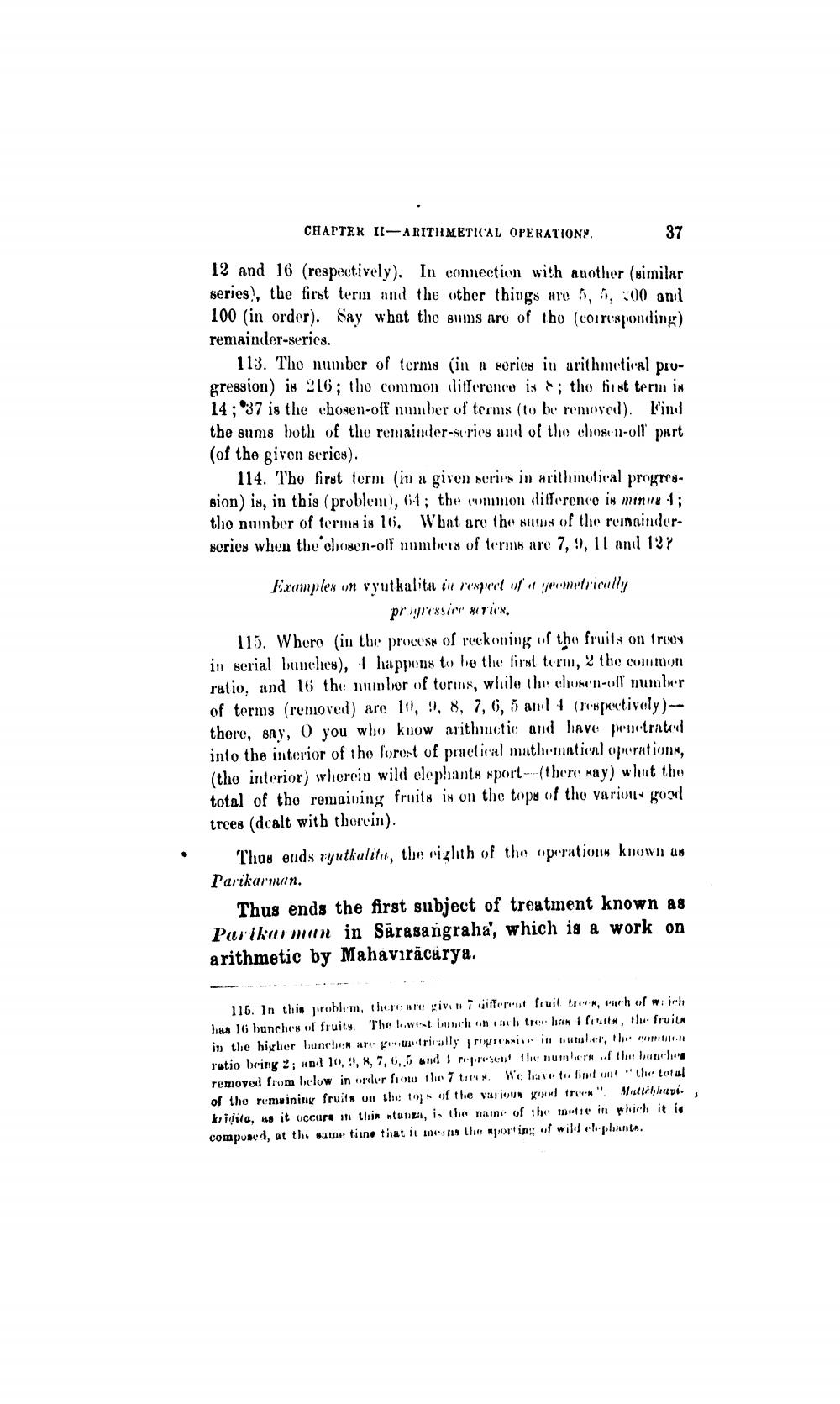________________
CHAPTER II-ARITHMETICAL OPERATIONS.
12 and 16 (respectively). In connection with another (similar series), the first term and the other things are 5, 5, 200 and 100 (in order). Say what the sums are of the (corresponding)
remainder-series.
37
113. The number of terms (in a series in arithmetical progression) is 216; the common difference is ; the first term is 14; 37 is the chosen-off number of terms (to be removed). Find the sums both of the remainder-series and of the chosen-off part (of the given series).
114. The first term (in a given series in arithmetical progression) is, in this (problem), 64; the common difference is minus 4; the number of terms is 16. What are the sums of the remainderscries when the chosen-off numbers of terms are 7, 9, 11 and 12?
Examples on vyutkalita in respect of a geometrically progressive series,
115. Where (in the process of reckoning of the fruits on trees in serial bunches), 4 happens to be the first term, 2 the common ratio, and 16 the number of terms, while the chosen-off number of terms (removed) are 10, 9, 8, 7, 6, 5 and 4 (respectively)-- there, say, O you who know arithmetic and have penetrated into the interior of the forest of practical mathematical operations, (the interior) wherein wild elephants sport-(there say) what the total of the remaining fruits is on the tops of the various good trees (dealt with therein).
Thus ends ryutkalita, the eighth of the operations known as Parikarman.
Thus ends the first subject of treatment known as Parikarman in Sarasangraha, which is a work on arithmetic by Mahaviracarya.
115. In this problem, there are given 7 different fruit trees, each of w: ich has 16 bunches of fruits. The lowest bunch on each tree has 4 fruits, the fruits in the higher bunches are geometrically progressive in number, the common ratio being 2; and 10, 9, 8, 7, 6,5 and 1 represent the numbers of the bunche We have to find out the total removed from below in order from the 7 trees. Maltehhavi. of the remaining fruits on the top of the various good tree kridita, as it occurs in this stanza, is the name of the metre in which it is composed, at the same time that it means the sporting of wild elephants.




